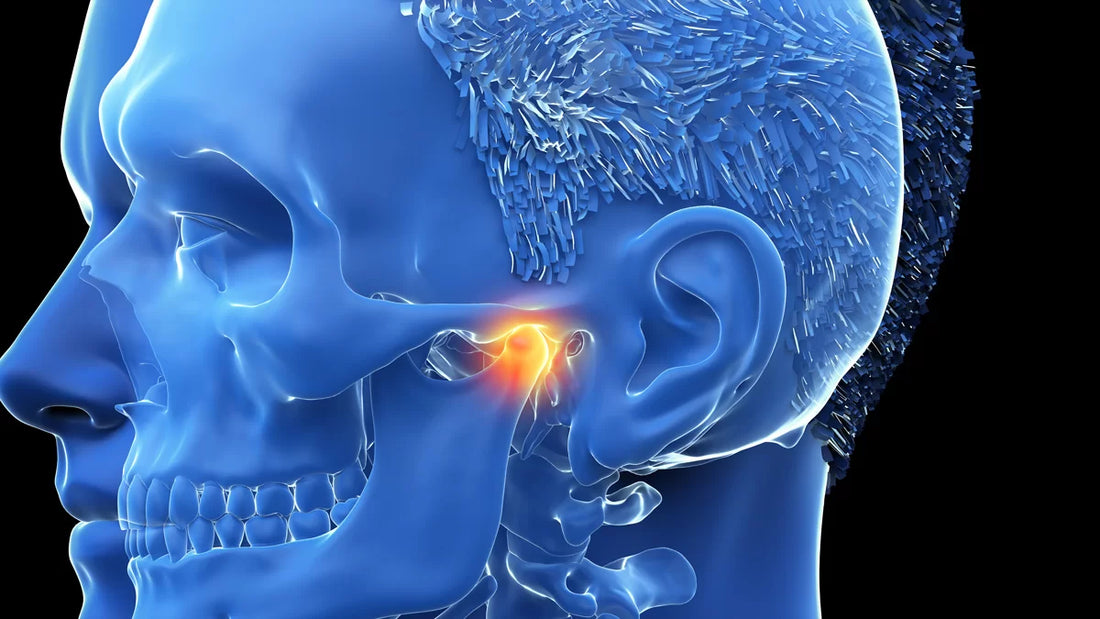Primarily, the practice of mouth taping has been gaining popularity due to its potential benefits in improving overall health, sleep quality, and mitigating temporomandibular joint disorders (TMD). Essentially, this practice involves taping the mouth shut before sleeping, thereby encouraging nasal breathing, which is presumed to have numerous health benefits.
Understanding TMJ and TMD
The temporomandibular joint (TMJ) is a ball-and-socket type joint that connects your jawbone to your skull. Each side of your jaw has one joint, and these joints are essential for all jaw movement, including talking, chewing, and yawning. Temporomandibular disorders (TMD) are a group of conditions that cause pain and dysfunction in the TMJ and the muscles controlling jaw movement.
Symptoms of TMD
TMD can manifest in various ways, including:
- Pain in the face, jaw, or neck
- Stiffness in the jaw muscles
- Limited movement or locking of the jaw
- Painful clicking, popping, or grating in the jaw joint when opening or closing the mouth
- A change in the way the upper and lower teeth fit together
Possible Causes of TMD
TMD can be caused by several factors, such as injury to the jaw or joint, grinding or clenching of teeth (bruxism), arthritis in the TMJ, or stress, which can cause a person to tighten facial and jaw muscles or clench the teeth.
The Practice of Mouth Taping
Mouth taping is a practice that encourages nasal breathing by keeping the mouth closed during sleep. The tape used is skin-friendly and doesn't irritate or harm the skin around the mouth. The idea is to promote nasal breathing and discourage mouth breathing.
How Does Mouth Taping Work?
Mouth taping works by gently keeping the mouth closed, forcing the person to breathe through their nose instead. Nasal breathing is considered to have many benefits, including increased nitric oxide levels, improved sleep quality, and reduced risk of dry mouth, which can lead to cavities and other oral health problems.
Potential Benefits of Mouth Taping
Several anecdotal benefits of mouth taping have been reported. These include:
- Reduced snoring
- Improved sleep quality
- Reduced dry mouth and associated dental problems
- Potential improvement of TMD symptoms
- Improved facial structure development, particularly in children
While these benefits seem promising, it's important to note that mouth taping is primarily a short-term solution and should not replace professional medical advice or treatment for conditions like sleep apnea or TMD.
Potential Risks and Side Effects of Mouth Taping
While mouth taping is generally safe for most people, it can cause some side effects, including:
- Skin irritation or allergic reactions to the tape
- Discomfort or anxiety about having the mouth closed
- Difficulty breathing, particularly for those with nasal congestion or respiratory conditions
Always consult a healthcare provider before attempting mouth taping, particularly if you have existing health conditions or concerns.
Mouth Taping and its Potential Effects on Teeth Grinding
Teeth grinding, also known as bruxism, is a condition where individuals grind, gnash, or clench their teeth, often during sleep. While there is currently limited research on the connection between mouth taping and teeth grinding, some evidence suggests that mouth taping can potentially reduce teeth grinding by promoting nasal breathing and reducing mouth breathing, which is often associated with bruxism.
In conclusion, mouth taping is a simple and affordable practice that could potentially improve sleep quality and reduce symptoms of TMD and bruxism. However, more research is needed to confirm these benefits. Anyone considering mouth taping should consult with a healthcare provider to ensure it is a safe and suitable option for them.



